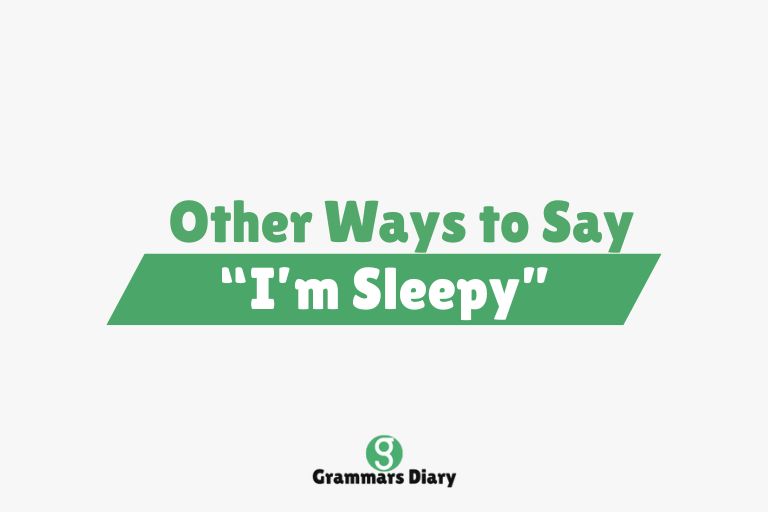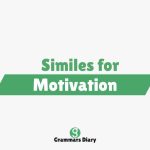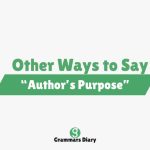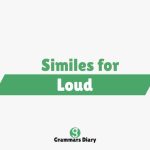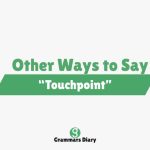The phrase “I’m sleepy” is commonly used to express a feeling of drowsiness or the need for rest, especially at the end of a long day, during a quiet afternoon, or when the body and mind have been pushed past their limit. While it’s straightforward and effective, repeating the same phrase in every situation can become monotonous or may not always capture the exact nuance of how you feel. Whether you’re trying to be playful, formal, subtle, or dramatic, there are plenty of alternative ways to communicate the same idea with more variety and expression.
This article explores 20 different ways to say “I’m sleepy,” helping you broaden your everyday vocabulary and find just the right words to match your mood, setting, or audience.
Other Ways to Say “I’m Sleepy”
1. I’m exhausted.
Example: “I’m exhausted after that five-hour meeting.”
Meaning: This expression emphasizes physical or mental fatigue more than just drowsiness, often after significant effort or activity.
Usage: Best suited for contexts where tiredness is caused by exertion or emotional strain, including work, school, or caregiving.
2. I’m drained.
Example: “After dealing with all the client complaints today, I’m completely drained.”
Meaning: Implies both emotional and physical depletion; more than just being tired—it suggests having no energy left.
Usage: Common in conversations that involve stress or emotional fatigue.
3. I’m beat.
Example: “I didn’t get much sleep last night—I’m beat.”
Meaning: A casual, colloquial way to say you’re very tired or sleepy.
Usage: Very informal; ideal for relaxed conversations among friends or family.
4. I could really use some shut-eye.
Example: “We’ve been traveling all day—I could really use some shut-eye.”
Meaning: A lighthearted, idiomatic way to say you want or need to sleep.
Usage: Informal and often humorous; works well in storytelling or friendly settings.
5. I’m nodding off.
Example: “I’ve read this paragraph ten times—I’m nodding off.”
Meaning: Describes the act of falling asleep gradually or unintentionally.
Usage: Useful in real-time descriptions of feeling sleepy, particularly when reading or sitting still.
6. I’m dead tired.
Example: “After working two shifts back-to-back, I’m dead tired.”
Meaning: A hyperbolic way to emphasize extreme sleepiness or exhaustion.
Usage: Informal and dramatic, often used to exaggerate how tired someone feels.
7. I feel drowsy.
Example: “This cold medicine makes me feel drowsy.”
Meaning: A more technical term for feeling sleepy, especially due to medication or a peaceful setting.
Usage: Suitable in both casual and semi-formal conversations, especially when discussing health or side effects.
8. I’m wiped out.
Example: “That workout really wiped me out—I need a nap.”
Meaning: Indicates extreme fatigue, often physical.
Usage: Commonly used after intense activities such as workouts, long shifts, or emotional days.
9. I’m ready to crash.
Example: “It’s been a long day—I’m ready to crash.”
Meaning: A modern, informal way of saying you’re about to go to bed or fall asleep from exhaustion.
Usage: Popular among teens and young adults; not ideal for formal speech.
10. I’m ready to hit the hay.
Example: “It’s almost midnight—I’m ready to hit the hay.”
Meaning: An old-fashioned idiom meaning to go to bed or fall asleep.
Usage: Light and conversational; great for humorous or relaxed situations.
11. I’m feeling sluggish.
Example: “After lunch, I always feel sluggish and unmotivated.”
Meaning: Implies a slow, lethargic state often tied to sleepiness or fatigue.
Usage: Suitable in both casual and semi-formal contexts, especially when explaining a lack of energy or alertness.
12. I’m fading fast.
Example: “I thought I could stay up, but I’m fading fast.”
Meaning: Suggests that you’re rapidly approaching the point of falling asleep.
Usage: Perfect in real-time conversations when someone is visibly getting sleepier.
13. I can barely keep my eyes open.
Example: “This lecture is interesting, but I can barely keep my eyes open.”
Meaning: Describes the physical struggle to stay awake, especially in quiet or slow environments.
Usage: Very expressive and useful in everyday conversation or narrative writing.
14. I need to hit the sack.
Example: “I’ve got an early start tomorrow—I need to hit the sack.”
Meaning: An idiomatic and casual way of saying you need to go to bed.
Usage: Similar to “hit the hay,” this phrase is best in informal, friendly settings.
15. I’m ready to turn in.
Example: “It’s been a long day—I think I’m ready to turn in.”
Meaning: A gentle, polite way to say you’re going to bed or feeling sleepy.
Usage: Slightly more formal than “crash” or “hit the sack,” and suitable in most settings.
16. I’m feeling groggy.
Example: “I didn’t sleep well last night—I’m feeling groggy this morning.”
Meaning: Refers to a sleepy, foggy-headed sensation often caused by insufficient rest or waking up too early.
Usage: Commonly used in discussions about sleep habits or morning routines.
17. I’m yawning nonstop.
Example: “I stayed up too late and now I’m yawning nonstop.”
Meaning: Highlights an obvious sign of sleepiness, used to emphasize how tired you feel.
Usage: Informal but effective, often paired with physical cues like stretching or yawning.
18. I feel like I could sleep for a week.
Example: “That trip wore me out—I feel like I could sleep for a week.”
Meaning: A dramatic exaggeration to convey deep, overwhelming tiredness.
Usage: Great for emphasis or humor, but generally informal.
19. I’m totally out of it.
Example: “I only got three hours of sleep—I’m totally out of it today.”
Meaning: Implies not only sleepiness but a lack of mental clarity or alertness.
Usage: Casual, often used to explain zoning out or difficulty concentrating.
20. My eyelids are heavy.
Example: “I was reading and suddenly realized my eyelids were getting heavy.”
Meaning: Describes the physical sensation of drowsiness leading to sleep.
Usage: Subtle and descriptive, this phrase works well in writing or soft-spoken conversations.
When to Use Different “I’m Sleepy” Alternatives
In Professional Settings
In professional environments, it’s better to use more composed expressions such as “I’m feeling groggy,” “I feel sluggish,” or “I didn’t sleep well last night.” These alternatives sound more polished and respectful, helping you communicate your need for rest without appearing careless or overly casual.
In Everyday Conversations
With friends, family, or in relaxed settings, go ahead and use expressions like “I’m beat,” “I need to crash,” or “I’m nodding off.” These phrases add flavor and personality to your language, making your speech feel more natural and relatable.
In Creative or Informal Writing
Writers can use more vivid or idiomatic alternatives like “my eyelids are heavy” or “I could sleep for a week” to describe characters’ states of mind or set a relaxed mood. These expressive choices help add texture and realism to your storytelling.
Conclusion
While “I’m sleepy” is clear and familiar, using more expressive alternatives helps you capture exactly how you feel and adds color to your communication. From casual phrases like “I’m wiped out” to more composed options like “I feel drowsy,” these 20 alternatives offer a wider range of ways to express tiredness depending on your mood, setting, and audience.
Being thoughtful with your word choice not only improves how you’re understood but also strengthens your communication skills over time—especially in both writing and conversation.
FAQs
What does “I’m sleepy” mean?
It means you’re experiencing a strong desire to sleep or rest, usually due to fatigue or drowsiness.
Is “I’m sleepy” formal or informal?
“I’m sleepy” is generally informal. In more formal situations, phrases like “I’m feeling drowsy” or “I’m groggy” are preferable.
Are there humorous ways to say “I’m sleepy”?
Yes—phrases like “I could sleep for a week” or “I need to hit the hay” add humor and personality to the conversation.
Can I use these expressions in writing?
Absolutely. Just choose your alternatives based on tone and context—some are perfect for creative writing, while others are best suited for everyday emails or dialogue.
